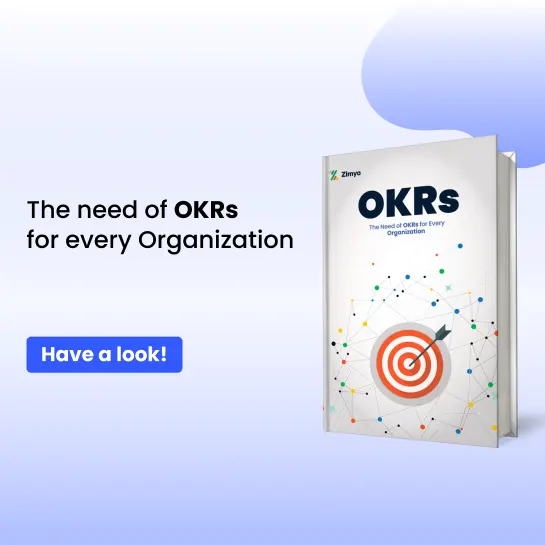We often talk a lot about the importance of employee well-being and engagement as it is a crucial predictor of primary outcome metrics. It is important to note that the employee empowerment process is different from employee engagement.
Companies now understand that giving employees more responsibility and autonomy is beneficial for both the people and the business. According to the Harvard Business Review, research has shown that empowered employees display enhanced productivity, better job satisfaction, and steadfast commitment to the organization.
The employee empowerment process in business is a management practice of sharing information, rewards, and autonomy with employees. For some years, the world of business has been going through a crisis. There has been a spike in cases of “brown-out”, a syndrome with similar symptoms to burn-out. Thus causing employees to lose interest in their jobs, leading to disengagement, discontent, and lethargy.
Here are answers to your questions on the employee empowerment process and some of our best advice on using empowerment in business.
Meaning of Employee Empowerment
Creating a culture of employee empowerment is a philosophy that encourages workers to make their own decisions in the workplace. Managers should give workers the proper support to feel confident in their roles.
The employee empowerment process allows them the autonomy to flourish with your guidance rather than micromanaging. Consider mistakes as lessons learned and take risks as an opportunity to grow. When appropriately implemented, employee empowerment helps the workers feel comfortable developing as professionals in their company.
Purpose of Empowerment at Workplace
The purpose of the employee empowerment process is to create an alignment between personal aspirations and broader organizational goals, which will result in a multitude of benefits for both the employee and the business. By applying the principle of employee empowerment, employees will assume greater responsibilities and be more involved in their work.
Global studies reveal that 79% of people who quit their jobs cite lack of appreciation as the reason for leaving. In contrast, employees that feel in control of their careers are 20% more likely to stay in their roles. By providing employees with the autonomy to make crucial decisions, leaders counteract dependence on top-down control, which originates from a lack of trust in employee abilities. Organizations that give employees more autonomy toward their work feel trusted and inspired. Hence, such employees work more efficiently and are more likely to stick with the organization.
Importance of Employee Empowerment at Workplace
It is essential to empower workers because it can significantly impact the bottom line. Organizations can easily outperform their competition when they encourage employees to develop new skill sets, boosting productivity. Empowering employees will lead to higher levels of employee engagement, lower attrition, and improved brand reputation.
Benefits of Employee Empowerment at Workplace
There are many reasons to practice employee empowerment. It helps individual employees take responsibility for their decisions and allows businesses to perform better in the long term than those that don’t implement the employee empowerment process.
The following are some specific benefits of empowering your employees –
1️⃣Employee Motivation & Job Satisfaction
When an organization empowers its employees to make decisions, the employer instills a sense of trust in its workforce. An employee becomes more accountable, knowing that the company has confidence in his ability to perform. Employee motivation is directly linked to empowering employees through greater autonomy. When employees have significant control over how, when, and where they do their job, they work harder and find their work more engaging. When given a chance to show off what they can do, employees perform to the best of their abilities and feel higher job satisfaction at the end of the day. Thus, it helps boost employee confidence, which will help develop junior talent into senior management over time.
2️⃣Improved Processes and Procedures
Empowered employees have the autonomy to ask questions and closely observe every aspect of the job from their perspective. If there isn’t employee empowerment, the employee never questions the process. An empowered employee sees a better way, makes the adjustments, and tries to improve the entire system. Employees who are empowered understand that their managers welcome new ideas to improve things.
3️⃣Talent retention
Employee empowerment is a massive determinant in retaining quality talent in your organization. It’s believed that people don’t leave bad jobs, but they leave bad managers. High-performing teams and professionals work in organizations that allow them to apply their expertise to learn, solve new challenges, and grow in their careers. A company that prioritizes employee empowerment process is better positioned to attract and retain expert talent.
4️⃣Saving on hiring costs
Several research studies conclude that replacing a team member or employee costs an average of six to nine months’ salary in recruitment and training costs. Companies with high employee churn spend more money on hiring, training, and onboarding new employees. Therefore, it is advisable to promote employee empowerment to reduce turnover and save hiring costs.
5️⃣Improved Creativity & Innovation
Leaders who encourage their employees to explore their potential and think out of the box are more likely to be highly rated by their employees. This unlocks the opportunity for business innovation and growth as creativity improves the overall workflow. It helps in finding alternative solutions to problems and breaking assumptions. Not only that, employees who felt empowered are more likely to volunteer for extra assignments and support their organizations outside of their day-to-day job function.
6️⃣Higher Quality Customer Service
Empowered employees have a positive ripple effect throughout the organization. They take personal pride in their work and take responsibility for doing a good job. Therefore, this helps organizations reap the benefits of empowered employees as they deliver more satisfactory products and services. With empowered employees, the business is better served through better customer service and support, better marketing and sales, even better collaborators and vendors. Empowered employees are proactive and thoughtful about customer requests and issues, making the business a welcoming place for prospects and customers.
7️⃣Confidence in Leadership
When employers care about the employees’ development and well-being, they perform better and are more willing to represent the company, take measured risks, and innovate. Thus, implementing the employee empowerment process increases confidence in leadership which significantly influences employee engagement, performance, and output. Empowered employees feel that their leaders will not take advantage of their hard work, but they will recognize and celebrate their wins.
 Faster Problem Resolution
Faster Problem Resolution
There is nothing more frustrating when dealing with business issues than being repeatedly referred to another person in the chain of command. When a person has the authority and resources to do the job without waiting around for multiple authorizations, things get done faster.
Also Read: Must-have HR Policies for Your Organization
Process of Employee Empowerment in your Company
Empowering employees is an ageless strategy that benefits existing employees and attracts new ones. As a result, implementing an employee empowerment process is good for business and makes working for an empowered company more satisfying.
Follow the below mentioned three-step process in your organization to ensure a positive impact of employee empowerment in your company –
✅Step 1
Start the process at the top. Employee empowerment process will benefit your company only when senior leadership is on board and committed to making empowerment a crucial part of business strategy. The first step towards an empowered employee is an empowering leader. Therefore, a combination of two ensures a drastic increase in employee productivity.
✅Step 2
Encourage your employees to take responsibility for their projects and promote employee involvement at all levels. The benefits of developing an employee empowerment process will become apparent when they can show what they are capable of.
✅Step 3
Establish a learning environment that stimulates creativity because a healthy work environment is critical to the employee experience. Empowering employees benefits not only the company but also benefits the employees themselves. When the workers are empowered, they can learn new skills and seek out training opportunities, leading to job enrichment and skilled employees.
Ways of Employee Empowerment at Workplace

Telling your employees that you trust and appreciate them is a fantastic start. It’s how you instill a true sense of trust and loyalty between a leader and their team. True motivation comes from employee empowerment by inspiring a workplace culture of innovation, creativity, and passion. Employee empowerment process persuades employees to care about their jobs and their work.
Use these simple workplace empowerment strategies to create a proactive company culture that inspires the employees to thrive –
➡️Demonstrate your Trust
The ideal strategy to establish employee loyalty is by showing your employees that you trust them. It is crucial to clarify the project’s objectives and give employees the autonomy to handle their projects in their way. There are high chances that the employees might not accomplish everything exactly as a leader would have, but they will get the job done with their flair.
 Communicate Clear Boundaries, Objectives & Expectations
Communicate Clear Boundaries, Objectives & Expectations
Goal-setting affects task performance and is the primary source of intrinsic motivation, driven by an interest in the task. There is a need to communicate a simple, clear, and relevant vision to inspire the team. The idea is to define clear and measurable goals with a realistic deadline for completion. This leads to greater output and better team performance and helps reinforce quality.
❌Don’t avoid small talk
People want to know that their leaders understand their knowledge, tendencies, and behaviors well enough to work with and motivate them. The best strategy to inspire employees is by having a leader who makes time and effort to know them and shows that they have their best interests at heart.
 Encourage self-improvement
Encourage self-improvement
Employees who learn new skills benefit the company as a whole. Several companies support and sponsor continued education or classes outside the workplace for enhanced personal growth.
?Leave your office door open
Another crucial step in empowerment is openness and the direct involvement of team members in the decision-making process. The employees should know that the company values their opinions for genuinely empowering them. Managers should support the team to facilitate discussion and solve problems by coaching and encouraging them to solve those problems rather than bringing them to the higher authorities. An open-door policy shows employees that the managers care what they think while enabling them to give their input and play an active role in the company.
 Support vacation time
Support vacation time
Supporting vacation time might sound counterintuitive to several leaders, but it is a belief that employee productivity will remain at its peak if employees are kept from burning out. Leaders should learn to recognize symptoms of burnout and avoid employees getting anywhere close by actively supporting vacation time.
When the employees are well-rested and rejuvenated, they will be more productive and better at their jobs. You don’t have to mandate full weeks off at a time, but you should foster an environment where a long weekend here and there is not just tolerated but actively supported.
 Delegate work and responsibility
Delegate work and responsibility
In the workplace, delegation and empowerment are conjoint. When employees clearly understand their responsibilities, they take ownership of their work. While planning employee empowerment process, managers must make sure that work is not the only thing they pass down. As employee confidence, commitment, and competence increase, delegate more tasks to them and let them decide and find the solution to the problems. Sharing the projects that people and customers notice will show employees that they have a huge impact on the business.
 Getting feedback and Recognizing excellence
Getting feedback and Recognizing excellence
Encouraging employees to provide honest feedback, listen to any concerns frequently and actively reinvent the organization to fit their needs empowers employees. This will provide them with a sense of being heard and supported. Employees will repay by repeating or improving their performance if the leaders and managers show sincere appreciation for their exceptional work. Recognition has been directly linked to higher empowerment and establishing an empowering culture at the organization. This will ensure continued high-quality work in the future and improved job satisfaction.
??Learn flexibility
Being flexible with the employees and establishing ground rules, the company can cultivate a more relaxed, casual workplace. If an employee needs to work from home or requires a more flexible schedule, the company should work with them to accommodate those needs. This helps the employees feel that the company values their lives outside work more than the rules. Moreover, employees feel more productive when they work in an environment of their choice.
? Inspire creative thinking and innovation
There are always better ways to do things by encouraging the employees to share creative business solutions. Enabling employees to be open with their ideas about problem-solving methods, processes, and solutions will allow them to showcase their innovation and creativity guided by their “ground-level” experience & perspective. Not only will this put the challenge in the hands of the employees, but it’s also likely that the employees will come out with a better result.
?Practice forgiveness for their mistakes
If the manager gets angry every time an employee makes a mistake, they will continue to play it safe. The purpose of employee empowerment is to allow them to feel confident and courageous enough to take risks and make their own decisions.
 Play to their strengths
Play to their strengths
Understanding each employee’s strengths and weaknesses allows the company to empower them in the best ways. For instance, if one of the workers is a great public speaker, encourage him/her to lead the next meeting. If another employee prefers to work behind the scenes, they can write a newsletter.
 Allow employees to work on special projects
Allow employees to work on special projects
Everyone feels a sense of fulfillment and empowerment when they learn something new and work with new people. Working on special projects will rejuvenate employees and help them connect with the organization’s more important purpose. As the employees work with new people, leaders, and skills, they will better understand how their work impacts the company. To ensure no one is left out, existing employees can guide new employees through orientation, set up mentoring circles or idea exchanges, and brainstorm new and exciting ways to engage with other departments. This produces a culture of continuity that can handle any changes thrown the organization’s way, even a global pandemic.
 Ensure employees have proper resources
Ensure employees have proper resources
To empower employees, companies should develop various resources and tools and show them how to use those resources. The resources should be accessible by the employees whenever they need them.
 Focus on the end results, not the process
Focus on the end results, not the process
Nothing kills employee empowerment quite like micromanaging. Allowing employees to choose how to work within the guidelines will empower employees to work in a way that’s ideal rather than following an impersonal process. Ultimately, the importance of the final product is greater than the steps followed to achieve it.
 Provide cross-training and learning opportunities
Provide cross-training and learning opportunities
People always wish to feel like they’re progressing in their careers. Companies should encourage their employees to branch out and take an active interest in other departments to foster their employees’ professional growth and development. This enables employees to develop and hone their skills and makes multifaceted team members eager to utilize their talents in their work. Fostering professional growth also necessitates that HR establishes a clear roadmap for career advancement at their company. Promoting employees in-house shows that growth and success have tangible rewards in the organization. Companies should ensure plenty of coaching, mentoring, and training programs are accessible to employees who wish to achieve their goals. Mentoring and coaching junior employees can boost morale and offer them a definite sense of direction.
A Stronger Bottom Line
A significant thing to remember is that an empowered workforce is not built in a day, just like Rome. It takes time and trust to solidify a self-sustainable team. Therefore, It will take a little faith on the companies’ part to reninvent the employee empowerment process. It is essential to show your team that you value their insights, that you trust their abilities, and that you’re willing to repay their hard work. The employees will contribute more to the organization than collect a paycheck in response. The employees will take pride in a job exceptionally well done.

 Focus on the end results, not the process
Focus on the end results, not the process




